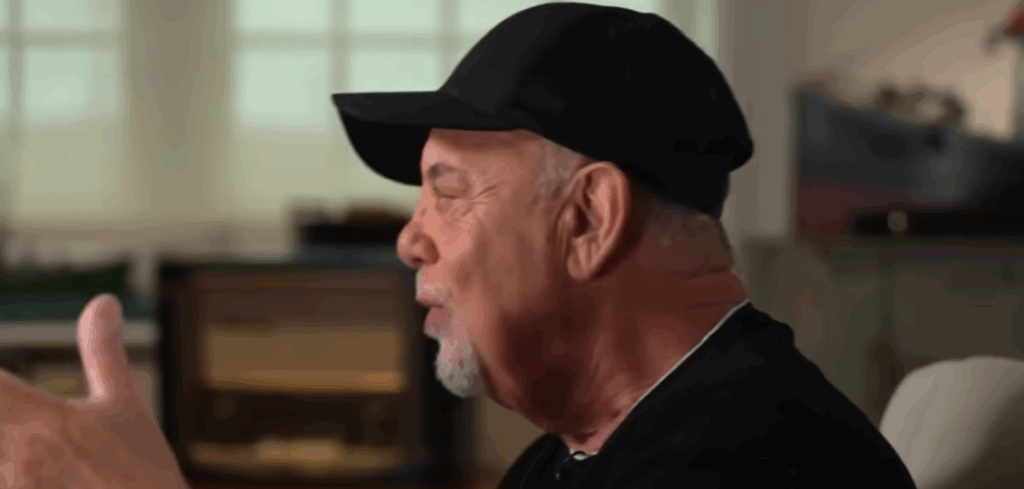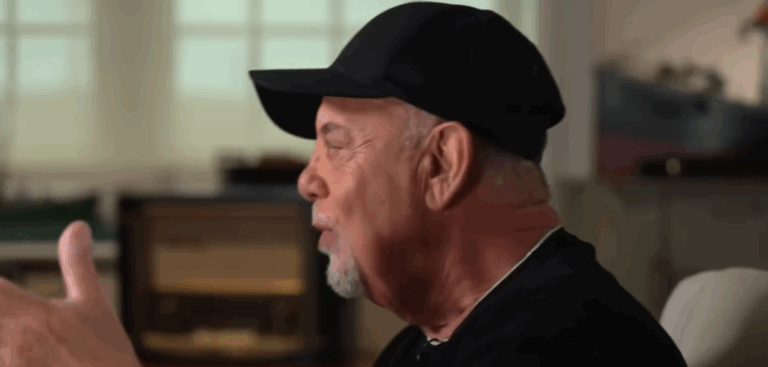Is Billy Joel ill? Across the nation, the question has reverberated in living rooms, radio stations, and music forums. The well-known “Piano Man,” Billy Joel, was diagnosed with normal pressure hydrocephalus, a neurological disorder, after he canceled all of his planned performances in May 2025. Despite being curable, the disorder has severe symptoms that have significantly affected his performance.
Not only have the symptoms—hearing, vision, and balance problems—been glaringly apparent during recent performances, but the performance itself has reportedly made them worse. He was spinning a microphone stand when he stumbled on stage at Mohegan Sun in February. When he recovered, fans cheered, but the fall suggested a more serious struggle. Joel was diagnosed with NPH later, but he had already been displaying the early symptoms, which included cognitive symptoms and gait disturbance, which were easily mistaken for aging.
Joel was especially courageous in sharing his diagnosis and canceling shows. He transformed a private health concern into a public awareness event. Dr. Charles Matouk of Yale University claims that because of its slow progression and symptom overlap with diseases like Parkinson’s and Alzheimer’s, NPH is commonly underdiagnosed. It’s possible that Joel’s choice to be candid has already encouraged others to get assessments for related issues.
Billy Joel Bio and Career Information
| Full Name | William Martin Joel |
|---|---|
| Date of Birth | May 9, 1949 |
| Age | 76 |
| Birthplace | The Bronx, New York City, USA |
| Profession | Singer, Songwriter, Composer, Pianist |
| Notable Hits | Piano Man, Uptown Girl, Vienna, Just the Way You Are |
| Grammy Awards | 5 Wins, 23 Nominations |
| Career Span | 1965–present |
| Health Diagnosis | Normal Pressure Hydrocephalus (NPH) |
| Marital Status | Married to Alexis Roderick |
| Official Source | NPR Report on NPH Diagnosis |

Joel’s team has confirmed in recent days that he is receiving ongoing care and physical therapy, but they have also reassured fans that he is not retiring. Under the advice of medical professionals, the decision to take a step back, even temporarily, was made. According to people close to him, he is still very motivated and hopeful about performing again. Joel is making good progress and has hope, according to his wife, Alexis Roderick.
Joel views music as an identity rather than merely a career. According to a source, “he’s happiest while performing,” People magazine reported. His perseverance has always been fueled by the artist-audience relationship. Joel’s decision to leave now is a decision to prioritize sustainability over stress, which is ironically a very successful strategy for guaranteeing his continued presence.
More aging music industry icons have been facing health limitations in recent years. A hip injury forced Elton John to postpone his final tour. Following surgery, Ozzy Osbourne continued to experience problems. Joel now joins an increasing number of legends who have to strike a balance between their personal well-being and legacy. The effect is intensely emotional for fans. Live music is more than just amusement; it’s a ritual that everyone participates in, and when a performer like Joel takes a break, it’s like everyone stops.
The condition known as NPH is brought on by an accumulation of extra cerebrospinal fluid in the brain, frequently as a result of inadequate drainage. It is often overlooked because, despite the misleading name, the pressure inside the skull is normal. Walking, memory, and bladder control are among the symptoms that are frequently confused with age-related decline. The diagnosis is especially important given Joel’s age and lifestyle.
Joel’s decision to be open and honest is having a significant knock-on effect. According to Dr. Ryan Lee of Vanderbilt, diagnosis necessitates perseverance from patients and their families as well as from doctors who seek clarification when symptoms appear unclear. Joel’s prominence could lessen that diagnostic lag, especially for men his age.
The music industry has reacted positively. According to reports, other musicians who are juggling the demands of aging while performing, such as Paul McCartney and Bruce Springsteen, have reached out. The emotional and physical difficulties that performers encounter after decades of touring have been recognized even by more recent celebrities like Lady Gaga and Ed Sheeran.
Joel’s team has used strategic communication to update fans without making the story overly dramatic. His statements, such as “looking forward to performing again” and “thankful for the excellent care,” were remarkably human and eloquent. In a field that frequently puts appearance before health, this degree of openness along with positive messaging feels especially novel.
Many NPH patients, according to doctors, experience significant improvement after a shunt procedure, in which a tube drains the excess fluid to another part of the body. Joel has not confirmed that he will have such surgery, but it is still a possibility. He is currently concentrating on treatment, changing his lifestyle, and getting better.
Not to be overlooked is the financial component. Joel has had one of the longest residencies in history, performing monthly at Madison Square Garden for years. Every sold-out night boosts the city’s entertainment economy in addition to his own earnings. Even if it is only temporary, his performance break signifies a significant change in the rhythm of New York concerts.
Nevertheless, Joel makes a strong statement by refusing to retire. It questions the notion that creativity must fade with age. Rather, it offers a different story—one in which the performance incorporates rest, recuperation, and introspection. It’s a story that seems more and more pertinent to our day.


